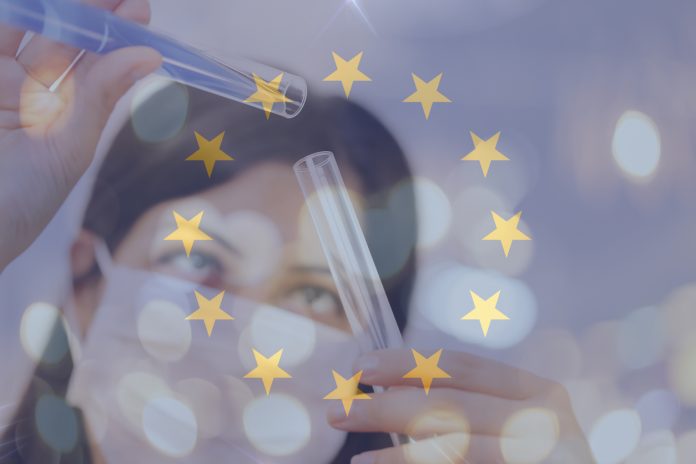Ole Petter Ottersen, Acting Secretary-General of The Guild of European Research-Intensive Universities, states that Europe is at a critical juncture regarding research and innovation investments
Europe is currently at a crossroads regarding research and innovation investments. It can choose to maintain the status quo, lagging behind other major international actors and the European Union’s (EU) own goals for R&D expenditure, or it can opt for a significant boost in investments commensurate with the challenges we are facing on our own continent and in the world at large.
Currently, the buzzwords that tend to colour the debate on the structure and format of the next framework programme are the following: European competitiveness, strategic autonomy, and security. With wars, conflicts and geopolitical turbulence, these terms will inevitably drive the discussions also in the time to come.
A report on Europe’s competitiveness will be published in Summer 2024, and a recent string of policy papers addresses European strategic autonomy and security with direct or indirect implications for research and innovation. The positive thing is that every one of these terms – competitiveness, strategic autonomy, and security – calls for increased research and innovation investments. The concern is that these terms – if misrepresented or misunderstood – could lead to a suboptimal design of the new framework programme.
R&D for Europe’s competitiveness
To start with competitiveness, it is true that Europe is falling behind when it comes to the development of complex technologies, including technologies that are seen as essential for autonomy, security, and economic growth. However, the well-intended focus on such technologies must not be allowed to detract from investments in social sciences, arts, and the humanities (SSAH). More than ever, there is a need to secure a place for SSAH in the framework programme, not as a stand-alone pillar but as a field that is truly integrated with other fields of research as well as with innovation.
Thus, to be competitive, we need new and advanced technologies, but we also need to understand how these technologies can be put to good use for society. Here is where SSAH has an important role to play: in addition to having value in itself, knowledge derived from the SSAH helps us build the interface between technologies and society, which is a prerequisite for social cohesion and societal resilience.
We should remind ourselves that social cohesion and societal resilience are essential elements of total defence and our long-term security. The biggest error we could possibly make in a time of war and conflict is to view academia primarily as a technological add-on to the military-industrial complex. This would be short-sighted and detrimental to society in the long run. The scenarios for dual-use research must be discussed in this context.
R&D: Strategic autonomy
Strategic autonomy is another term that will continue to figure prominently in discussions about the structure and content of the next framework programme. In an era of wars and geopolitical tensions, it is understandable that Europe sees the need to secure and diversify its supply chains and safeguard sensitive technologies. However, this move towards autonomy and self-reliance must not be allowed to spill over to and unduly impact international academic collaborations.
Accounting for only 9.3% of the world’s population (and an even lower proportion in the future), Europe is dependent on having access to the knowledge and innovations produced elsewhere. During the pandemic we saw how important it is to exchange information with other parts of the world. Since pandemics, climate change, and other global challenges interconnect us all, we must also stay interconnected in finding solutions.
Security in Europe
This brings us to the third term: security. International collaborations entail risks, and even more so now than before because of the democratic backsliding that we have witnessed over the past decades. But there is also a substantial risk in non-collaboration, given our
interconnectedness.
Further, the excellence in research that we are all striving for is very much dependent on the richness of perspectives afforded by academic cooperation. Thus, the new framework programme should be as open as possible to collaborations with third countries.
Rules and regulations should be applied with utmost care and not permitted to encroach unduly on institutional autonomy and academic freedom. Obviously, the freedom to select international collaborative partners comes with a responsibility and with the need to build competence for safe internationalization in individual universities and research environments.
It is no exaggeration to say that the next framework programme will shape our future. With sufficient investments (and we are asking for a doubling of the current budget), the tenth framework programme is poised to strengthen our competitiveness, as well as our resilience and cohesion as a society.
Investing in world-leading research
Beyond that, with an appropriate structure and priorities, the programme should continue to cater not only to society at large but also help individuals achieve full potential and safeguard their well-being. To take us to where we want to be in the future, we will need to invest in world-leading fundamental research, nurture the innovative spirit, and fully integrate the social sciences, arts, and humanities while recognizing the need to close the technology gap.
In conclusion, The Guild´s position on FP10 is rooted in seven principles:
1. Secure an ambitious and stable budget.
2. Promote scientific excellence by building on what works – the European Research Council and Marie Skłodowska-Curie Actions being stellar examples.
3. Leverage researchers’ creativity in challenge-oriented projects.
4. Embed innovation in scientific excellence.
5. Safeguard research excellence through academic freedom and openness.
6. Strengthen research excellence across Europe and reduce the R&I gap.
7. Uphold and strengthen international cooperation adhering to the principle of “de-risk but not decouple” and recognize Switzerland and the United Kingdom as preferential partners.
EU research and innovation policy focus
Are you aware that the Commission’s Directorate-General for Research and Innovation is responsible for the EU’s research and science and innovation policy, with the aim of promoting growth and job creation and addressing Europe’s most pressing societal challenges? (1) The leadership includes Iliana Ivanova, European Commissioner for
Innovation, Research, Culture, Education and Youth (2023-2024), and Marc Lemaître, Director-General. (2) The latter talked about empowering research careers and reinforcing the European Research Area in a previous edition of Open Access Government. (3)
In early May 2024, the European Commission tripled the budget of the EURIZON Fellowship Programme by €4.5 million under Horizon Europe to support ongoing Ukrainian research. The programme enables Ukrainian researchers to continue their projects, conduct innovative research, establish long-term international collaborations, and broaden their research impact. The Fellowship Programme will implement 65 projects involving 324 Ukrainian scientists. Some projects have already begun, while others will conduct research across various scientific disciplines in collaboration with European research infrastructures.
“As the EURIZON Fellowship Programme received an incredible number of applicants, we will not remain silent to the needs of the research and innovation community in Ukraine,” Commissioner Ivanova said, adding that the Commission would “continue to stand with Ukraine and its researchers”. (4)
References
1. https://commission.europa.eu/about-european-commission/departments-and-executive-agencies/research-and-innovation_en
2. https://commission.europa.eu/about-european-commission/departments-and-executive-agencies/research-and-innovation_en#leadership-and-organisation
3. https://www.openaccessgovernment.org/empower-research-careers-strengthen-the-european-research-area/168965/
4. https://ec.europa.eu/commission/presscorner/detail/en/ip_24_2370











